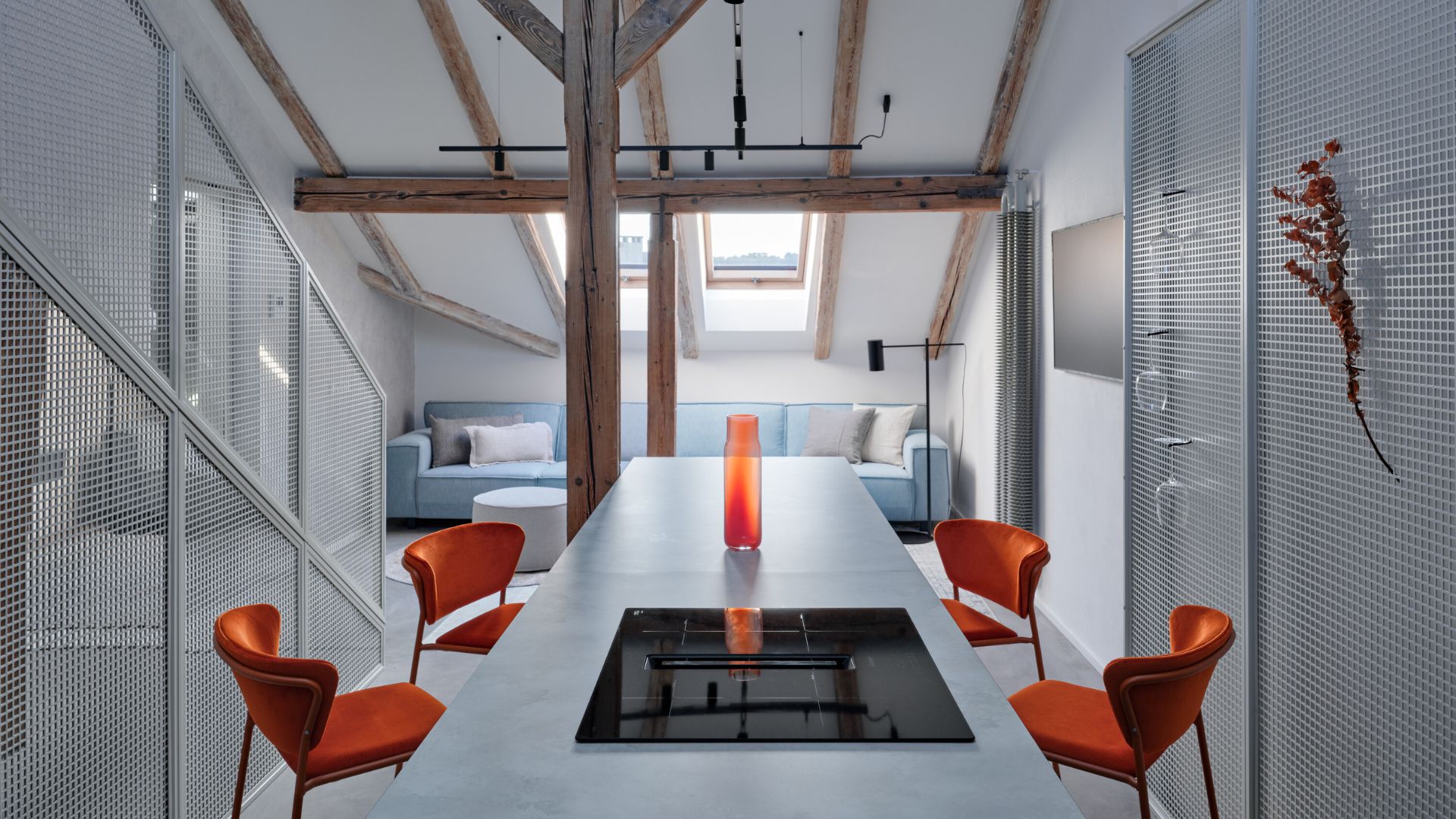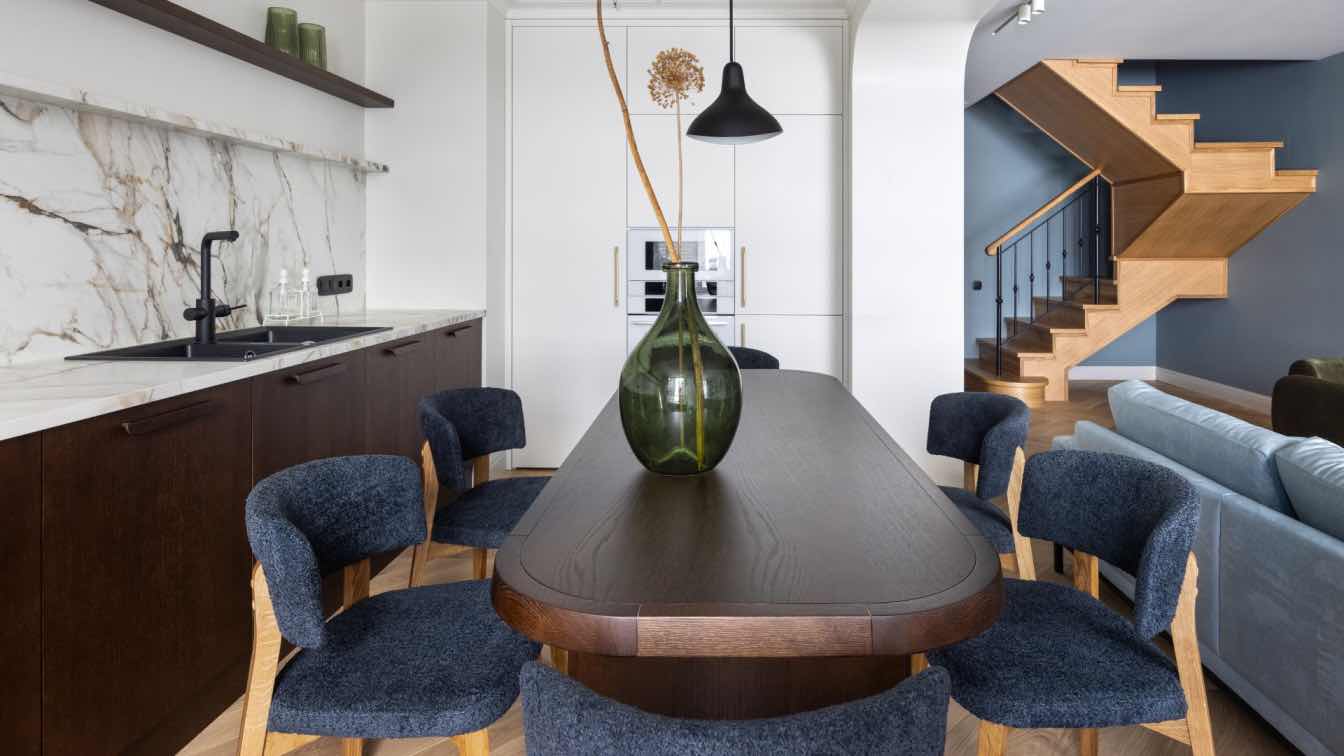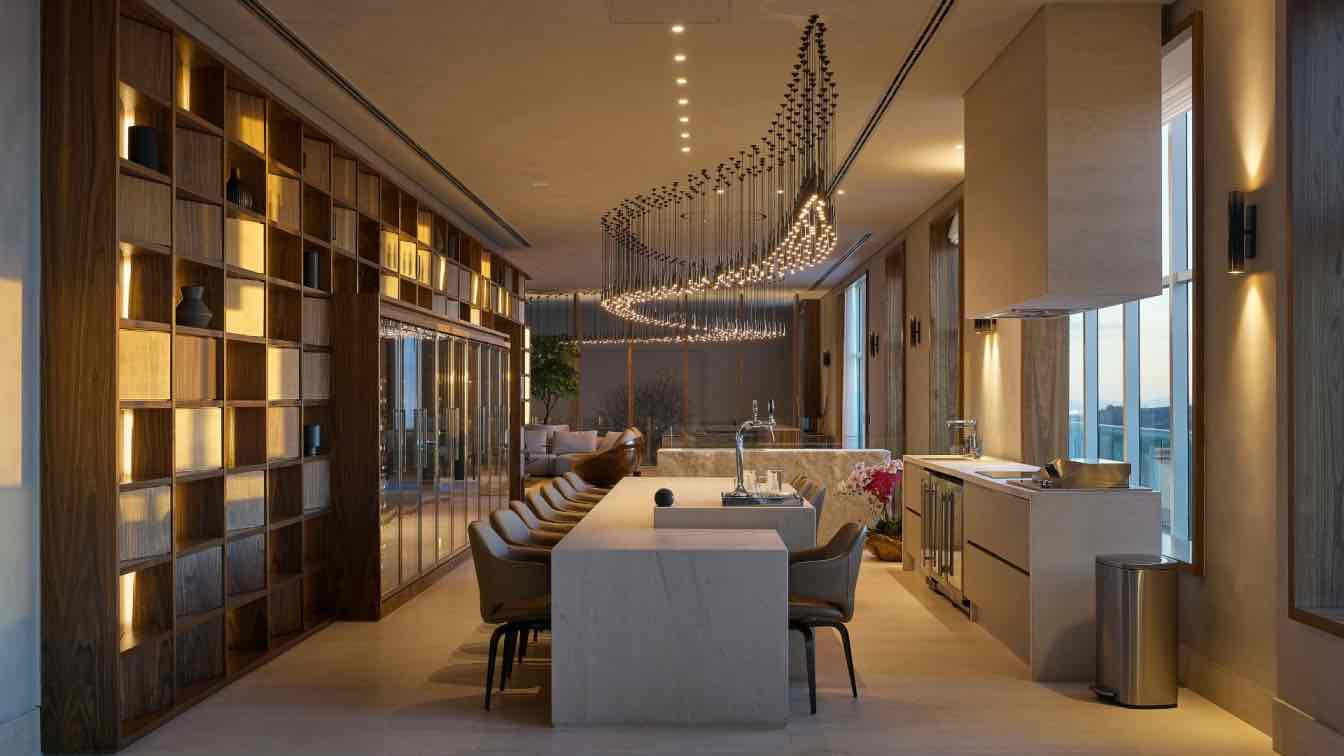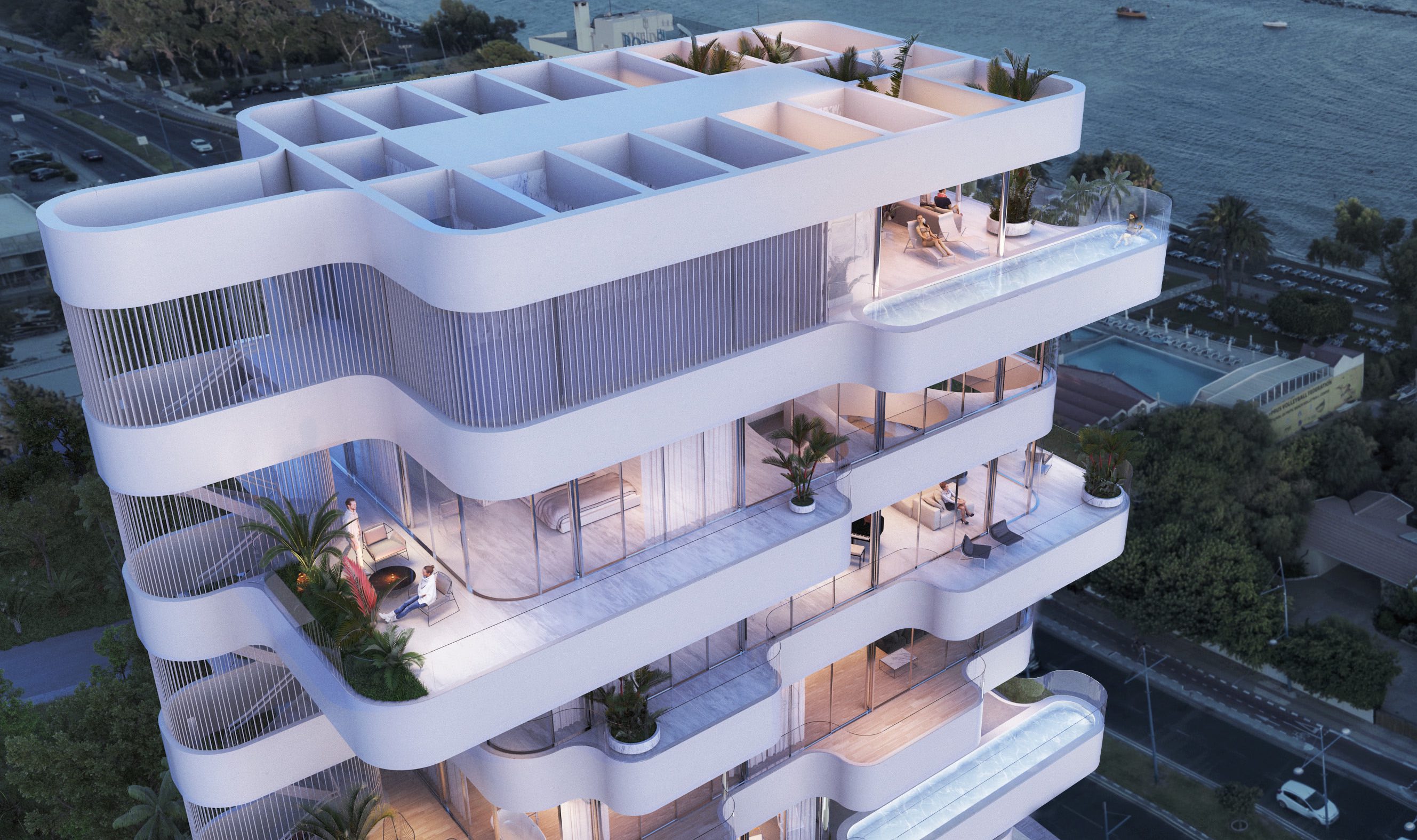Formafatal: The renovation of the attic space in the historic building at Arbes Square focused on creating a two-level attic apartment intended for exclusive rental. Prior to starting the design, the original documentation for the building permit of the entire floor was prepared by architect Pavel Hnilička. Subsequently, the client approached us with a request to design the interior and potentially adjust the layout.
The entire floor was divided into four residential units, one of which was part of our design. The apartment layout was changed only minimally, taking into account the technical possibilities and the position of connection points. The client's wish was to create a timeless yet unique space that would appeal to potential tenants. Key aspects included the practicality and sustainability of the surfaces and materials used.
The client gave us free rein regarding the conceptual design of the entire attic. The space, which initially appeared rather dark due to the smaller roof windows, was transformed into a bright and airy interior with attractive color and material accents. The primary element became a creamy white matte surface, enriched with various textures and subtle shades of gray and blue, as well as the use of bleached wood. This base was enlivened with accents in turquoise and terracotta, applied to the standalone elements.
A separate mass is placed within the space—a dark block, a low cube placed in the high, open space with a tall roof structure. This mass, containing a tall kitchen cabinet, hallway cladding, and a wardrobe in the bedroom, is made of unified materials and placed under the gallery ceiling, finished in a dark walnut decor. The result is a contrast between the inserted mass, which adheres to one of the perimeter walls.

The upper floor remains in soft shades of cream and gray. In addition to the wooden structure of the fireplace, a striking element is the steel staircase with an atypically designed railing made of matte-painted steel profiles, with inserted perforated sheet metal in a matching color scheme. At the bottom of the staircase, where there is storage space, the perforated sheet is backed by a mirrored stainless steel plate. This combination creates a mirroring effect of the space while maintaining practical storage access. Similarly, part of the hallway construction is partially perforated and partially fitted with a mirror.
A major challenge for us was the complexity of the old attic space. We aimed to handle it sensitively by incorporating the interior elements we designed and had custom-made, as is customary for us. The result is a harmonious contrast between the modern inserted elements and the old story told by the beams of the original roof structure. This dialogue between the historic and the modern gives the space a unique character and creates an engaging environment for its inhabitants.
























About studio / author
Formafatal is an internationally recognized architecture and interior design studio founded in 2015 by Czech architect Dagmar Štěpánová, who now lives and works in Costa Rica. The studio operates between two bases—Costa Rica and the Czech Republic—developing projects across the globe.
Dagmar Štěpánová graduated from the Faculty of Architecture at the Czech Technical University in Prague. After twelve years of professional experience, she established Formafatal to pursue a more personal and holistic approach to architecture. Drawn to the vibrant cultures and natural landscapes of Central and South America, Dagmar relocated to Costa Rica in 2020, where she has since completed award-winning projects including Art Villas and Achioté, a pair of exclusive jungle villas designed for short-term stays, which she co-owns and manages.
While Dagmar leads Formafatal’s architectural projects in Costa Rica and throughout the region, on which she now collaborates with Belgian architect Jeroen Bollen, the Prague studio remains active under the leadership of architect Katarína Varsová and designer Jan Roučka, supported by a team of architects and designers. The studio works across residential, commercial, and cultural projects, with a focus on interiors, exhibition design, and product design.
Formafatal’s design philosophy is rooted in an individual approach to each project, emphasizing empathy, conceptual clarity, and attention to detail. The team places strong emphasis on sustainability and the preservation of historical and contextual values.
The studio’s work has been recognized with numerous international and domestic awards. In 2020, Formafatal was named Interior Designer of the Year at the prestigious Dezeen Awards and won the Architizer A+ Awards for the Atelier Villa in Costa Rica. Other acclaimed projects include Gran Fierro restaurant, Loft Hřebenky, Moon Club, and Wine Bar Autentista in Prague.
Formafatal continues to evolve through long-term collaborations, including a regenerative farm project in Costa Rica, while remaining grounded in its commitment to creativity, craftsmanship, and cultural sensitivity.





